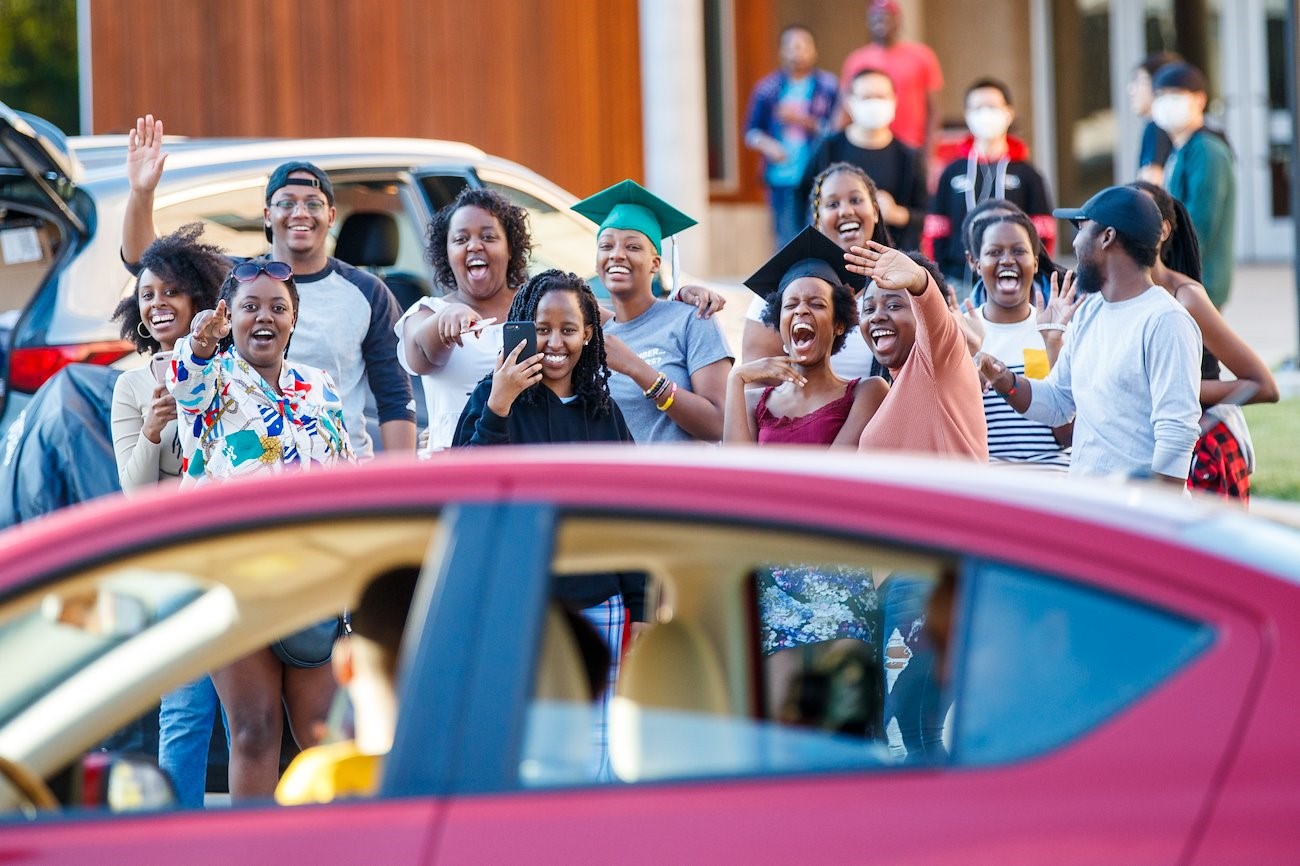
By Courtney Van Hoosen | Office of Global Strategies
For many Huskers, the University of Nebraska-Lincoln is a second home. But for the more than 3,000 international students and scholars who travel thousands of miles to study and research at Nebraska, the university often holds a deeper connection.
As the global pandemic gained momentum in early 2020, many international students began to reach out to the International Student and Scholar Office (ISSO) for guidance on potentially returning home and how the situation might affect their studies. When it became clear that “normal” was going to look very different for the foreseeable future, the ISSO team accelerated preparation to provide their services remotely for students and scholars.
In addition to e-mail and phone advising, ISSO implemented remote advising via video chat to help students and scholars feel comfortable and connected to the office. The U.S. Department of Homeland Security (USDHS) provided temporary COVID-19 guidance that allows for exceptions to certain regulations and the team developed procedures to implement these exceptions, including remote instruction alternatives and digital signatures and submission on documents and forms including ravel signatures. Thanks to the diligent efforts of the ISSO, those students and scholars who chose to return to their home country for the spring semester in light of COVID-19 were able to receive signed documents via mail, and later electronic signatures.
“One of our top priorities for our international students and scholars during this pandemic is to ensure they have the most up-to-date information on immigration compliance,” said director Karen Cagley. “We also want to make sure they still feel connected to campus and their academic, social and professional needs are being met.”
In late March, ISSO conducted a survey for all international students and scholars to check on them, determine how many had returned to their home country, and answer questions the group had. Drawing from the survey results and conversations with Big 10 peers, the office launched a reimagined series of virtual events to reach students and scholars no matter where they were.
One of these events included a weekly virtual lunch hour on Fridays at 12:00 p.m., which will continue into the summer. During the lunches, international students and scholars could chat with ISSO staff, hear from their peers, and participate in activities led by the office’s Global Peer Mentors team. The lunches also filled a crucial need in reassuring students during such unprecedented times.
“[My favorite part is] getting tips from other students about how to cope with this uncertainty,” said Shemsa Ndahiro Iribagiza, an integrated sciences major from Rwanda. “It is always nice to hear that I am not alone in this.”
ISSO also coordinated with campus partners such as Student Involvement to host larger virtual events. On April 25, more than 50 students, faculty and staff joined the virtual karaoke and dance night party held over Zoom with a live DJ.
While the shift to remote has not been ideal, it was the right decision for UNL to safely continue the education of its students.
“Our international students and scholars are an important part of what makes our Nebraska community so incredibly rich,” said Josh Davis, associate vice chancellor for global affairs. “Despite all of the uncertainty this global pandemic has brought, I’m proud that the ISSO and the entire university have worked tirelessly to support our international students and scholars, whether they remained here on campus or returned to their home country.”
Thanks to the support of academic departments, offices and other academic units, international students found a positive outlook on the situation as they continued their academic requirements.
Students like Sandhya Karki from Nepal are grateful for the flexibility the university has given students in finishing assignments and changing deadlines to switch to pass/no-pass. Eugene Baraka, integrated sciences major from Rwanda, and Alden Ching, a finance major from Malaysia who graduated in May, used the period of remote instruction to reflect and prepare for their futures.
“Remote instruction has not only given me more time to study, but also to think about what would be my next step after graduation,” said Baraka. “It’s been a great time so far since I am learning many things about myself.”
Additional university and community collaborations helped ensure international students and scholars finished the semester strong, including: University Housing, who ensured students had a safe, clean place to live for the remainder of the semester and summer while awaiting flights home; the University Registrar, who helped confirm mailing addresses for graduating international students; the Office of Global Strategies, who partnered with the Nebraska Alumni Association to hold their annual international student graduation reception virtually; and members of the Christ Place Church community, who helped organize a parade of cars for Rwandan graduates from the CASNR Undergraduate Scholars Program (CUSP).
With the assistance of its many campus partners, the ISSO team will continue to support international students and scholars remotely through the summer, and is working diligently with university leadership to prepare for the fall semester.
“Here at the University of Nebraska-Lincoln, we will continue to welcome all of our international students and scholars, and we will work with them as they return for the fall semester,” said Davis.
This article was contributed to by Rachel Ayalon, Nakell Baker and Karen Cagley from the International Student and Scholars Office.